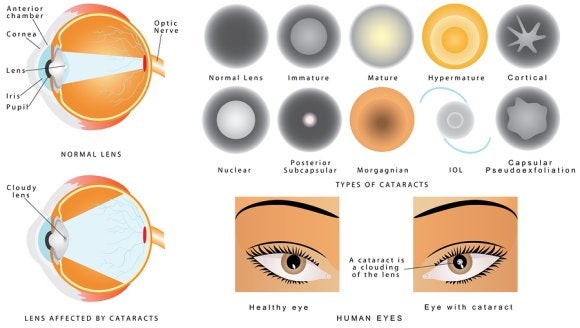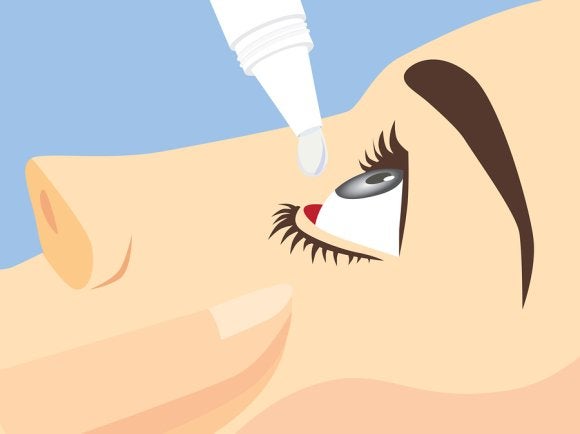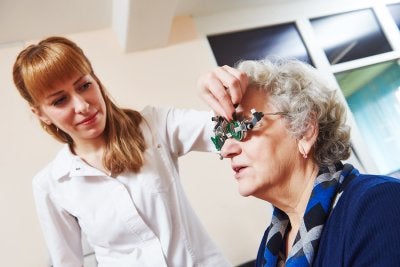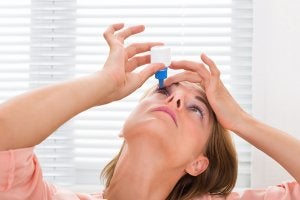-
What You Should Know About Glaucoma
Glaucoma is a chronic eye disease that can lead to blindness . It involves damage inflicted on the optic nerve. Although your eye doctor cannot cure glaucoma, he or she can help you learn how to manage it properly. Early detection is critical, so schedule regular eye exams at an optical center in Chicago. Your eye doctor can check for the early warning signs of glaucoma by performing a dilated eye exam, which checks for damage to the optic nerve. The ophthalmologist can also check the pressure in your eye and assess your visual field.
When you visit the optical center, be sure to tell your eye doctor about any changes in your vision. Glaucoma typically causes patients to lose “patches” of vision such as peripheral vision. If you are diagnosed with glaucoma, it’s likely that your ophthalmologist will prescribe medicated eye drops to lower the pressure within your eye and prevent further damage. Some people with glaucoma may need laser surgery to manage intraocular pressure.

-
What Is Dry Eye?
Dry eye is extremely uncomfortable, and when left untreated, can lead to chronic pain, eye ulcers, and corneal scarring. See your eye doctor for dry eye treatment in Chicago to prevent long-term complications and chronic discomfort.
Dry eye occurs when the eye either doesn’t produce an adequate amount of tears or produces tears that evaporate too quickly. This causes inflammation that can make it difficult to look at a computer screen, watch television, or read. With dry eye, patients experience stinging, burning, the feeling of sand in the eyes, redness, inability to cry, and decreased tolerance for dry environments. There are many different causes, ranging from medications to certain eye diseases.
There are a number of different ways your doctor can treat dry eye. Sometimes, switching medications can be the solution. Other patients benefit from eye drops and nutritional supplements. In rare cases, eye surgery to prevent premature tear evaporation could be helpful. Your eye doctor will devise a dry eye treatment plan based on the root cause of your symptoms.

-
Eating for Eye Health
As your eye doctor can tell you, your diet can affect your vision in a number of ways, but if you have diabetes, the foods you eat take on even more significance. Talk to your eye doctor in Chicago about the link between blood sugar control and vision health. This video explains more.
High blood sugar can cause damage to the blood vessels in your eyes that can lead to blindness. By controlling the amount of carbohydrates in your diet, you can better control your blood sugar level and reduce the chances of eye damage. When you visit your eye doctor, he or she will perform an exam to check for diabetic eye damage and can offer eye care tips, including dietary advice, to better protect your vision.
-
Protecting Your Eyes During Sports
If you play sports regularly, you should ask an ophthalmologist near Chicago for tips on preventative eye care and protective eyewear. Opticians recommend that you wear protective eyewear during sports in order to reduce your risk of serious eye injury or damage. Here is a look at how eye doctors recommend you protect your eyes while playing high-risk, moderate-risk, and low-risk sports.

Eye Protection for High-Risk Sports
If you regularly play high-risk sports, your ophthalmologist will recommend that protective eyewear become a regular part of your eye care routine. Eye protection is particularly necessary if you wear contact lenses, as they put you at higher risk for eye injury and damage. High-risk sports include paintball, basketball, racquetball, softball, and football. These sports are high-risk because they involve swinging bats, fast moving balls, and heavy contact. You’re much more likely to need to visit an eye doctor for emergency eye care if you don’t wear protective eye wear while playing high-risk sports.
Eye Protection for Moderate-Risk Sports
Moderate-risk sports include golf, tennis, and soccer. While these sports still carry the risk of eye injury due to fast moving balls and swinging clubs and racquets, they are lower contact sports. Your eye doctor or ophthalmologist can recommend eyewear that will fully protect you from injury. It’s important to remember that wearing eyeglasses or sunglasses does not provide adequate protection from trauma, and the wrong eyewear might actually make an injury worse. You should visit your local optical center to discuss the most appropriate forms of protective eyewear for your sport.
Eye Protection for Low-Risk Sports
While low-risk sports are much less dangerous, they still care a risk of eye injury. Your optician can evaluate the level of risk and determine what form of protective eyeglasses you will need. Low-risk sports include swimming and cycling. You might need to wear protective goggles to eliminate the risk of eye irritation, scratches, and foreign objects becoming caught in your eyes. Again, this is particularly important if you wear contact lenses.
-
What Is Astigmatism?
If your eye doctor has diagnosed you with astigmatism, you might need specialized eye care in Chicago . Astigmatism results from a distortion in the shape of your eye’s cornea, causing blurry vision that necessitates vision correction via eyeglasses or contact lenses. Your ophthalmologist might be able to reverse or slow the progression of astigmatism by fitting you with special contact lenses that slowly correct the shape of your eyes.
Watch this video to learn more about astigmatism and how it affects your vision. An experienced ophthalmologist discusses the signs and symptoms of astigmatism, and explains how an eye doctor can treat the condition. An optician or ophthalmologist at your local optical center can offer comprehensive eye care services to treat your astigmatism.
-
Tips for Fighting Dry Eye
 Dry eye syndrome is one of the most common causes of eye discomfort. To manage your dry eye symptoms, you can visit an eye doctor or ophthalmologist for dry eye treatment in Chicago, and take some steps at home to prevent dry eyes. Here are some helpful tips for fighting dry eye symptoms this winter.
Dry eye syndrome is one of the most common causes of eye discomfort. To manage your dry eye symptoms, you can visit an eye doctor or ophthalmologist for dry eye treatment in Chicago, and take some steps at home to prevent dry eyes. Here are some helpful tips for fighting dry eye symptoms this winter.Use Eye Drops Regularly
The first and simplest line of defense against dry eyes is using eye drops regularly. Your eye doctor or ophthalmologist can recommend the best type of artificial tears for your condition. Artificial tears will keep your eyes moist, and combat other dry eye symptoms like itchiness, watery eyes, and irritated or sore eyes. You can use artificial tears as often as necessary to provide relief of dry eye symptoms. If your symptoms don’t improve, your eye doctor can prescribe a different form of dry eye treatment.
Avoid Spending Time in Dry Air
Dry air will further irritate your dry eyes, and you should avoid sitting in front of a heating or cooling vent, fan, or space heater. Heaters remove moisture from the air and exacerbate or cause dry eyes, but you can counteract this effect by using a humidifier in your home. A humidifier will replace lost moisture and make your eyes feel much more comfortable. If you don’t want to purchase a humidifier, you can place a pan of water on top of your radiator for a similar effect.
Protect Your Eyes from Wind, Cold, and Heat
Wind and excessively cold or warm weather will dry out your eyes. If you’re planning on spending more than 15 minutes outdoors, you should be sure to protect your eyes. You can wear sunglasses and a hat to prevent cold wind and sun from irritating your eyes. If you wear prescription eyeglasses, you may want to ask your eye doctor about prescription sunglasses for further UV protection. You should also protect your eyes from smoke from fires and cigarettes, as smoke will also dry out your eyes.
